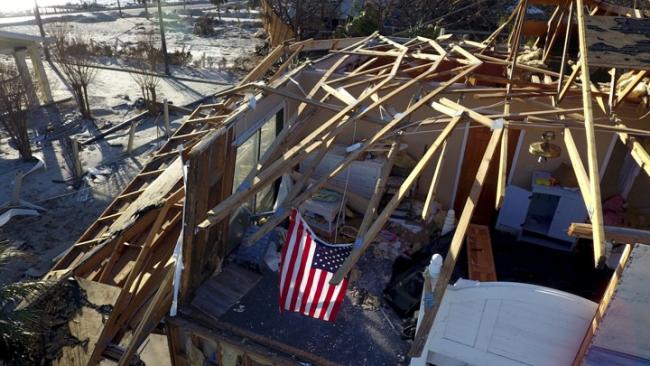The recent report from the UN’s Intergovernmental Panel on Climate Change provides a grim vision of the near future. It finds that major, irreversible effects on ecosystems and natural resources are all but unavoidable, because they will likely occur at a lower temperature threshold than previously estimated.
Read: How to understand the UN’s dire new climate report
On a human level, the IPCC report portends a cascade of troubling scenarios unless immediate action is taken: Droughts, floods, rising seas and heat indices, and famines will be disastrous for populations, especially the masses that continue to crowd global urban areas. Coastlines and wetlands will change faster than cities’ abilities to adapt. Human movement will warp boundaries and spark conflict. The report finds that, in the present day, “poverty and disadvantage have increased with recent warming,” and that those disadvantages will increase over time.
Even under President Donald Trump—who has abdicated national climate responsibilities—the global realities of a changing planet have become a part of American security policy. The 2017 defense-reauthorization bill included findings that “climate instability will lead to instability in geopolitics and impact American military operations around the world.” Those conclusions build on quadrennial reviews from the Defense Department that conceptualize climate change as a global security risk. “These effects are threat multipliers that will aggravate stressors abroad such as poverty, environmental degradation, political instability, and social tensions,” states the 2014 review.
Taken together, all of these forecasts envision a world in which major disasters weaken states and deepen conflicts, breaking safety nets and alliances alike. They predict the degradation of governance as economic outputs decrease, people are displaced, and global food resources falter. The Defense Department calls climate effects “threat multipliers that will aggravate stressors abroad such as poverty, environmental degradation, political instability, and social tensions.” As Durwood Zaelke, the president of the Institute for Governance & Sustainable Development, told me, these dramatic scenarios are actually supported by human history, which illustrates the rise of conflict during times of environmental pressure. “This seems almost like a science-fiction scenario, but in fact it’s a well-written thing in the geological and climate record,” said Zaelke, whose Washington-based nonprofit focuses on the future of international governance.
According to several climate researchers, those long-term global trends are already identifiable at the local level. Zaelke told me Hurricane Michael, like other recent storms, provided a sneak peek at the ways that climate-linked disasters are intensified by a lack of political will to mitigate climate change, which can in turn destabilize governments and sap them of the policy muscle needed to adapt. Though Michael hit a storm-prone stretch of the Deep South, this feedback loop is relevant across the country. Climate denialism among Republican policy makers, who dominate at the state and national levels, dictates that even acknowledging changing weather patterns can constitute a political loss, let alone planning for them in advance. When catastrophes hit, lawmakers funnel funds toward recovery, but they don’t invest in measures that could improve future resilience.

